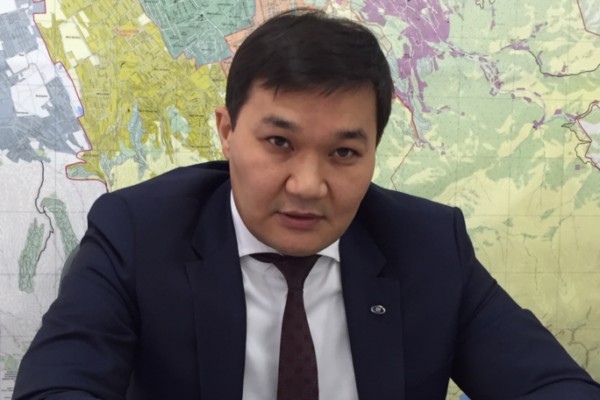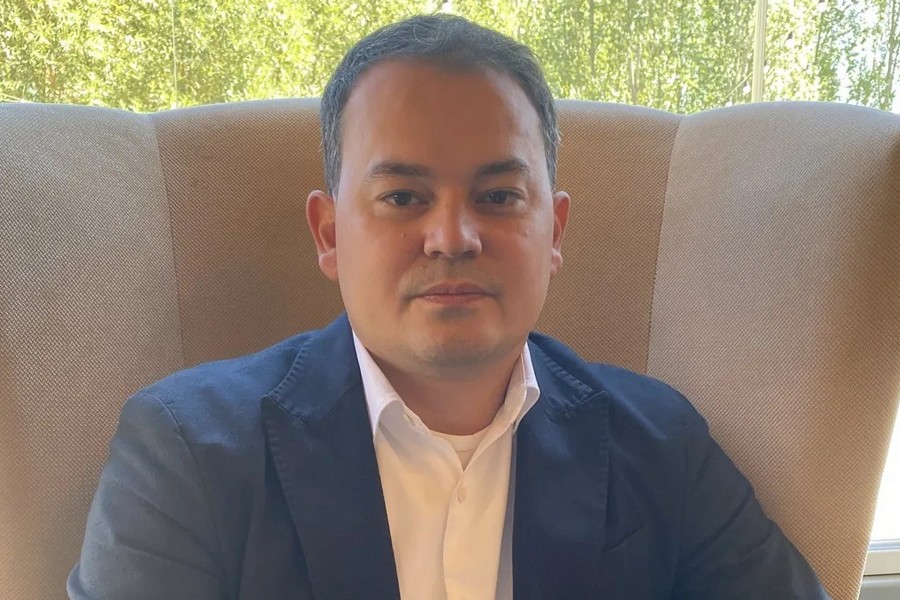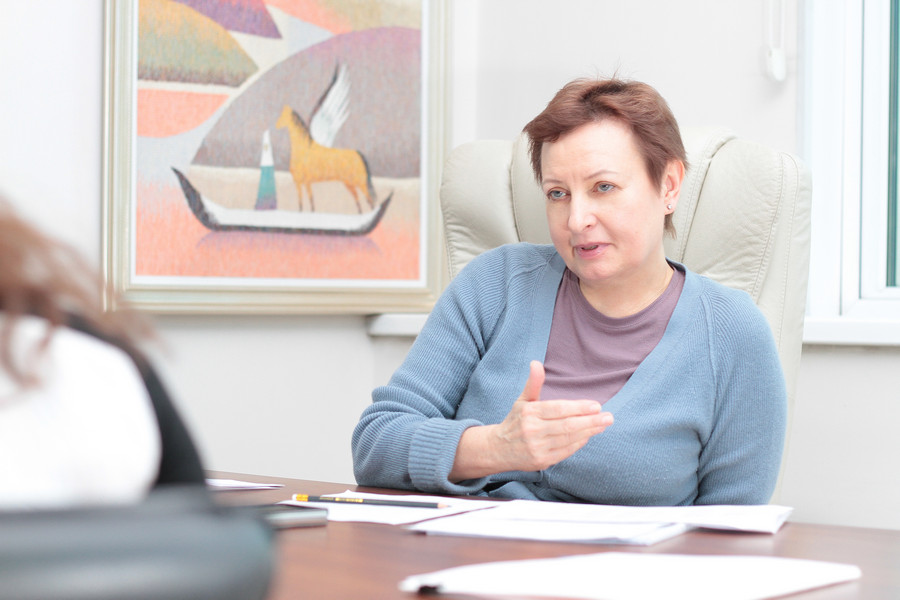BI Development Almaty Director General Aidos MUKATAYEV:
WE EXPECT 10-12% PROFITABILITY IN 2018

The construction market revived in 2017 and the construction companies are growing. Kazakhstan’s primary housing market will grow 20-30% this year, BI Development Almaty Director General Aidos MUKATAYEV told Interfax-Kazakhstan in an interview
- Mr. Mukatayev, what were the main trends in the real estate market in 2017?
- I think the market revived despite the decline in consumer demand, the inflation and the decreasing income of the population.
- How did the market revive if the personal income of the citizens is decreasing?
- Firstly, there is a housing shortage [in Kazakhstan], except for Astana. The UN standards say that the floor area per person should be 30 square meters, but in our country it is 27.6 square meters, according to the official statistics. In fact, the migration processes show us that the real numbers largely differ from the statistics.
Secondly, people seek to live in new, modern and comfortable residential buildings. The housing in Almaty is getting old, 60% of the residential buildings were built in the Soviet era. Moreover, even the buildings that were constructed 10 years ago are not as comfortable as the new ones.
Thirdly, the quality of new constructions is increasing due to the modern standards for construction materials, safety, public areas and landscape designing. Our company’s projects are developed not only by architects but also by designers who find aesthetic solutions for every project.
Lastly, it has to do with the after-construction services: we provide maintenance works for all the residential buildings our company contstructs.
- Could you please give more examples on how the market revived?
In 2017, the volume of new housing areas in Kazakhstan totaled 11 million square meters, including 1.1 million square meters built by our company. The volume of mortgage loans increased by about 40% and this is one of the key indicators of the growing demand. Another thing is that the number of construction companies is increasing. For instance, the construction volume of our company grows by about 30% each year. Our portfolio of development projects is also increasing.
It was expected that the construction market in Astana would collapse after the EXPO-2017 exhibition, but it has not happened and the market development rate has only slightly decreased. If we talk about Almaty in particular, over the past three years our company’s project portfolio has expanded from two to eight projects. At present, we have four new projects that are being designed and we are awaiting approvals from the architecture committee and the city authorities concerning requirements for building arrangement, the number of floors and compliance with the city’s general plan.
The main thing is that there is a demand and, according to our analysis, the demand is growing in Almaty. This means that we need to develop further to meet this growing demand.
- What do you expect in 2018?
- I think the primary housing in Almaty will increase by 25-30%. We also expect that the primary housing market will expand all over Kazakhstan.
- 25-30% is such a big increase.
- Yes, it is. We can now see our competitors endeavoring to get the best land plots in Almaty for construction. There are a few areas suitable for construction in the city and we all know them. This results in an increase in their prices. High prices for land plots will inevitably affect the construction cost per square meter for the end-buyer.
The market growth of 25-30% in Almaty will be mainly supported by a strong demand for economy and standard class apartments. The State Program Nurly Zhol is also one of the main growth drivers. Without it, the growth would not be more than 10%.
Construction costs are also growing because of the increasing prices for building materials, such as metal and concrete. Over the past two years, we have been keeping our concrete prices flat but the market takes its toll on our prices, and the rise in the cement prices will eventually lead to an increase in the concrete production costs. The prices of our business partners and subcontractors that carry out finishing and other work have also gone up. I will give a simple example: Russia-made doors, which we buy for economy class apartments, used to cost 70,000 tenge each, but now their price has increased to 100,000 tenge.
- How does the inflation affect real estate development?
- Price growth leads to lower profitability. A decade ago and before the tenge devaluation, the profitability could be as high as 25% but today it cannot be more than 6-10%. Construction costs, including imports of equipment and materials, have significantly increased over the past few years, whereas the housing prices per square meter have only grown by about 15%.
- What is the expected profitability for this year?
- In 2018, we expect profitability to be around 10-12%, which will allow us to form provisions for unbudgeted expenses – construction business is full of surprises, I must say. Also, there are expenses related to professional training, work clothes, special equipment and safety, to which we attach paramount importance.
In 2017 BI Development Almaty put into operation 30,000 square meters of housing and we plan to triple it to 100,000 square meters in 2018.
- Has the housing development market in Kazakhstan changed over the past year?
- There are three leading construction companies in Almaty, including BI Group, Bazis-A and RAMS Qazaqstan. The rest of them are smaller but not less important companies, which are the key players in their niches. For instance, Timus-Construction builds social housing on the outskirts of the city and is one of the construction leaders under the State Program Nurly Zher. There is also a new company, our growing competitor, called Tau Development that builds residential complexes meeting high standards of quality and design. Another one, Almaty Vilnius Architects, is engaged in construction of buildings that combine architecture and interior design – they are by all odds the leaders in their field. We, on the other hand, play at a big-company level alongside with Bazis-A, a strong and large company. We watch each other’s projects, and this is good news for end-buyers as the competition process brings our services onto a higher level.
- What is your company’s market share?
- If we take into account all construction work, including roads, infrastructure and development, our company is number one in Kazakhstan. Our revenue in 2017 totaled 400 billion tenge. In Astana our market share is about 48-50%. We first came to Almaty five years ago and to date our project portfolio has reached eight housing complexes, which accounts for 20% of the city’s market.
- You are a property developer company. How do you fulfil this role?
- Yes, our company, to a considerable extent, is a real estate developer. We subcontract 76% of our construction work through tenders.
- Do you construct and manage commercial property?
Yes, we do. We build separate business centers and hotels, as well as commercial property in residential buildings. Our company BI Property manages commercial property. Let me explain you: BI Group Holding Company consists of five companies. One of them is BI Construction, which is engaged in infrastructure projects and constructs schools, hospitals and other [public] buildings upon the government’s orders. BI Development is our estate development company operating in Almaty, Astana and Atyrau. BI Engineering deals with the oil and gas infrastructure and implements projects in Atyrau such as Prorva, an oil field, road construction. Our company is a direct subcontractor of Tengizchevroil JV. BI Road Construction builds roads in Kazakhstan and abroad. Our market share in Kazakhstan’s road construction sector is 25%. BI Property owns and manages all our immovable assets, including our offices.
- Do you use innovations in construction?
We are returning to prefabricated panel construction, which is a very good value for money. I cannot say that we are leaders in this direction, but in Astana, one of our divisions has already built a mini-factory for the production of reinforced concrete structures that we are going to use in construction. This year we will start using prefabricated reinforced concrete panels for construction of standard class residential buildings, as well as cladding panels and the tunnel formwork technology, which shortens the construction time.
- Let’s go back to this year’s trends in the construction market.
- We do not expect tenge to rebound to 318/$1 after its last fall. This means that the prices per one square meter in new properties will rise a little bit. There are buyers, who save money in the US dollars and benefit from exchange rate swings. We had such buyers during the previous tenge devaluation. The devaluation was first followed by a sharp growth in demand but then by stagnation. Our current situation, I think, will spur the buyers to exchange their dollar savings into tenge and buy property from the developers.
- How will the anti-Russian sanctions affect the construction industry in Kazakhstan?
- The exchange rate does not affect our budget 100% but only 40% if we talk about our new projects. Say, if a project is 70% complete, it means that everything was already purchased for the project beforehand, including elevators, cladding and heating equipment. Therefore, the residential complexes that are going to be commissioned this year will not be dependent on exchange rate fluctuations. It is no secret that the prices for housing are much lower at the beginning of construction works, rather than at the end of construction. Therefore, it is better to buy flats at the beginning of the construction.
- We also conduct stress tests at the beginning of a new project. The financial model is based on the current exchange rate, let us say it is 330/$1, but in the stress test we assume it to be 350, 380 or 400/$1. Of course, we would not be happy if the exchange rate goes as high as 400, because it would be a very different environment, but at 350-370/$1 we would still be able to stay afloat.
It is no good for us even if we break even. If the sales have not started yet, we optimize the production costs, prices and the concept. If the concept is approved and sales have already started, we will not change the prices in order to be honest with our buyers. We will finish the project any way, even if we do not generate any profit. This is our policy.
- Did you learn the lessons from the 2015 crisis?
- Yes, we did. We learned the lessons and we now work following the principle “one project – one company.” The manager that leads two housing projects has no right to transfer money from one project to the other – there cannot be any financial assistance and settlements between the two projects. For example, if one of these two projects demonstrates low profitability, this only means that we made a wrong decision at some stage and we have to face the consequences.
- Do you think the developers influence the city?
- Of course. We all know that the chief architect who sees the city as a whole has his own perception, but the city authorities heed our advice too. Developer should know the latest news and trends in the industry, and share their ideas with the city authorities, as we do now.
There are construction standards and regulations that slow down the developer that wants to finish the construction of a building in a hurry – and I think this is right. However, there are excessively rigid and awkward norms that hinder the city’s development. For example, the width of buildings beyond the Al-Farabi Avenue in Almaty must not exceed 17 meters. The height, I agree, affects the ventilation, panorama, but the building width of 17 or 24 meters equally affects the ventilation. In such cases, we discuss it with the competitors and partners, we offer correct solutions, and everyone benefits from this, both future buyers and the city dwellers. Almaty is changing and we are trying to make our city more attractive and more comfortable by building separate residential complexes.
– Thank you for your time!
May, 2018
© 2025 Interfax-Kazakhstan news agency
Copying and use of these materials without reference to the source is prohibited
Archive






